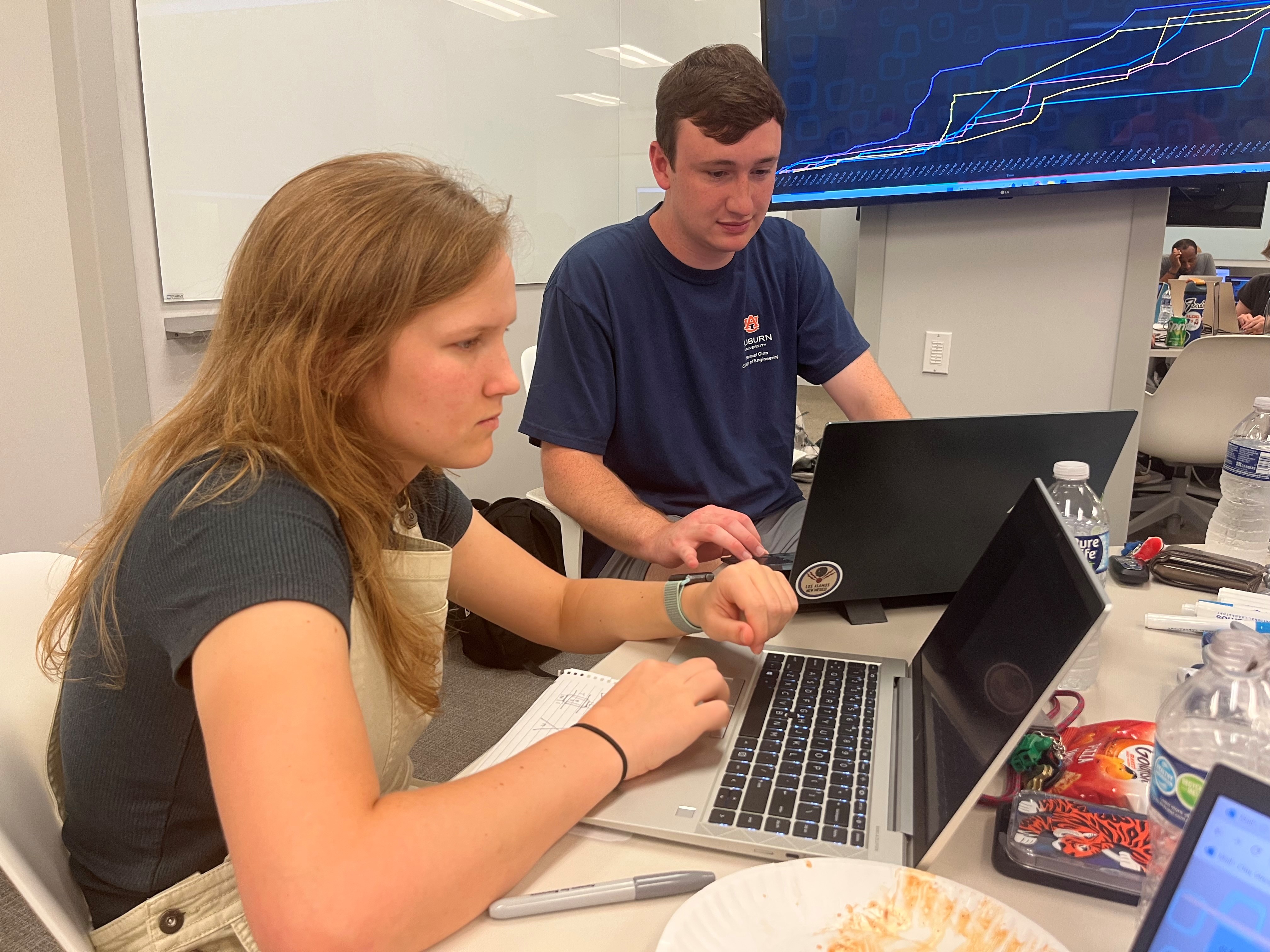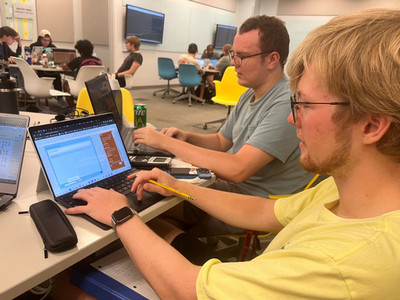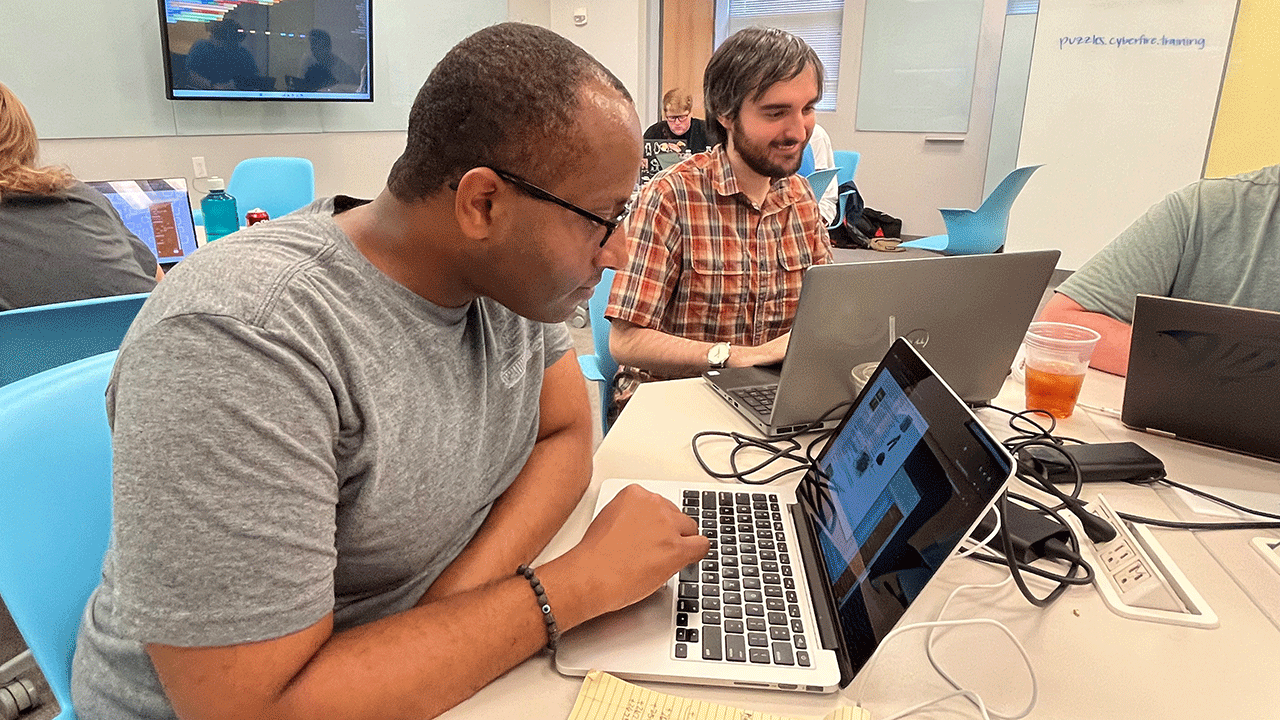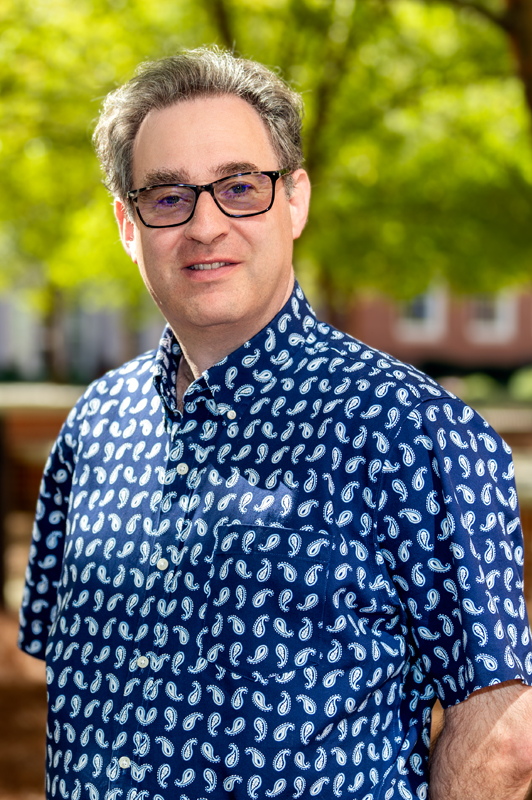Cyber Fire Puzzles presents real-life cyber security challenges to develop students' cyber defense skills
Published: Aug 21, 2023 2:25 PM
By Joe McAdory
Almost 60 students were presented with cyber security challenges in the form of puzzles to develop skills fundamental to practitioners on August 19-20.
Cyber Fire Puzzles is hosted by the Auburn University/Los Alamos National Laboratory (LANL) Cyber Security Sciences Institute (CSSI), the Auburn Cyber Research Center (ACRC) and the Auburn University Ethical Hacking Club (AUEHC) and prepares today’s college students for tomorrow’s cyber defense workforce needs.
Created by LANL, participants from engineering, business, and sciences & mathematics deliberated as teams, scattered laptops across desks, discussed calculations, and worked to resolve code-cracking puzzles. Students were taken on journeys through binaries and malicious programs, reconstructing hierarchical file structure of hard drives and passwords to uncover.
“It’s very important that students utilize exciting hands-on extra-curricular experiences such as this in order to develop foundational cybersecurity skills,” said Daniel Tauritz, associate professor in computer science and software engineering, interim director and chief cyber artificial intelligence strategist of the ACRC, and director for national laboratory relationships. “It’s operational application of the knowledge they’ve gained in the classroom. This is a bridge between formal academic education and the skillset needed to excel as practitioners in their careers.”

Braden Tisdale, a doctoral student in computer science and software engineering, said the weekend allowed students the opportunity to learn more about ciphertext and encrypted data.
“Exposure to these real-life situations helps prime you for doing real analysis and be able to think critically,” he said. “In the real-world, this (cyber defense strategy) is often like a puzzle that you have to piece together.”
Mauren Baker, who received a degree in computer science from Auburn last December, is a previous Cyber Fire Puzzles participant – as student and past president of the AUEHC. This time, she helped LANL host the event as a scientist for the national laboratory.
“Coming back to Auburn is an incredible opportunity,” said Baker. “Taking the knowledge that I’ve gained from the workforce and the experience that I have developed … to come back to Auburn and encourage others to pursue careers in this field is very special to me.”
Cyber Fire Puzzles also inspired a visiting exchange scholar from Munich, Germany.
“This event has helped me in meeting new students,” said Jan Bleicher, who arrived in Auburn just two months ago from the University of the Federal Armed Forces in Munich and will continue to work on his thesis research through the fall semester. “I really enjoy solving a variety of puzzles and problems. It didn’t take long for me to notice that different people have different levels of expertise, and we can help one another.”


Cyber Fire Puzzles, created by the Los Alamos National Laboratory, drew students from the Samuel Ginn College of Engineering, Harbert College of Business and the College of Sciences and Mathematics.


